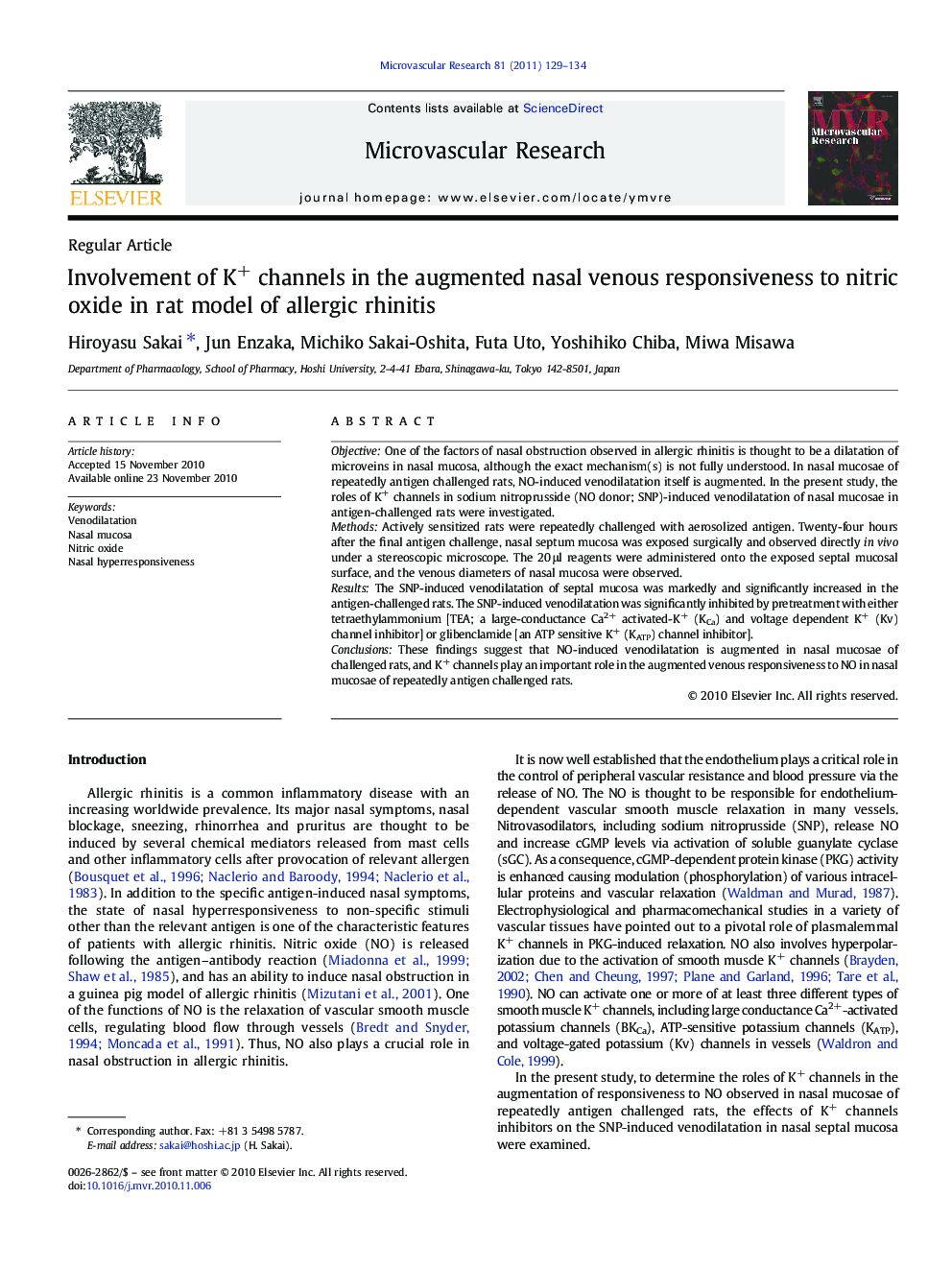| کد مقاله | کد نشریه | سال انتشار | مقاله انگلیسی | نسخه تمام متن |
|---|---|---|---|---|
| 1995027 | 1064948 | 2011 | 6 صفحه PDF | دانلود رایگان |

ObjectiveOne of the factors of nasal obstruction observed in allergic rhinitis is thought to be a dilatation of microveins in nasal mucosa, although the exact mechanism(s) is not fully understood. In nasal mucosae of repeatedly antigen challenged rats, NO-induced venodilatation itself is augmented. In the present study, the roles of K+ channels in sodium nitroprusside (NO donor; SNP)-induced venodilatation of nasal mucosae in antigen-challenged rats were investigated.MethodsActively sensitized rats were repeatedly challenged with aerosolized antigen. Twenty-four hours after the final antigen challenge, nasal septum mucosa was exposed surgically and observed directly in vivo under a stereoscopic microscope. The 20 μl reagents were administered onto the exposed septal mucosal surface, and the venous diameters of nasal mucosa were observed.ResultsThe SNP-induced venodilatation of septal mucosa was markedly and significantly increased in the antigen-challenged rats. The SNP-induced venodilatation was significantly inhibited by pretreatment with either tetraethylammonium [TEA; a large-conductance Ca2+ activated-K+ (KCa) and voltage dependent K+ (Kv) channel inhibitor] or glibenclamide [an ATP sensitive K+ (KATP) channel inhibitor].ConclusionsThese findings suggest that NO-induced venodilatation is augmented in nasal mucosae of challenged rats, and K+ channels play an important role in the augmented venous responsiveness to NO in nasal mucosae of repeatedly antigen challenged rats.
Graphical AbstractFigure optionsDownload as PowerPoint slideResearch Highlights
► Nasal venous responsiveness to NO is augmented in rat with allergic rhinitis.
► The NO-induced venodilatation is mediated by TEA-sensitive K+ channels.
► Also, the NO-induced venodilatation is inhibited by glibenclamide.
► Augmented K+ channels activities might be involved in rhinostenosis.
Journal: Microvascular Research - Volume 81, Issue 1, January 2011, Pages 129–134